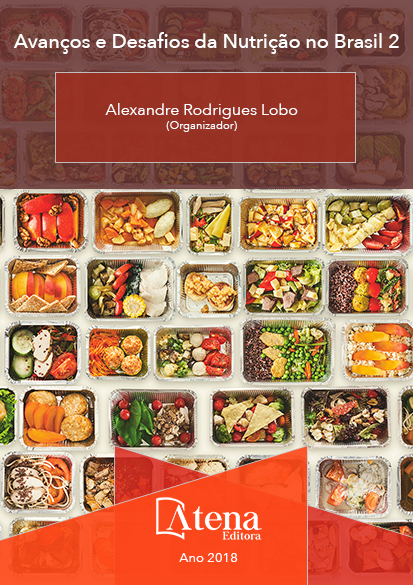
CONTRIBUIÇÓES DO PROGRAMA NACIONAL DE ALIMENTAÇÃO ESCOLAR PARA O DESENVOLVIMENTO DA AGRICULTURA FAMILIAR: UMA REVISÃO DA LITERATURA
A alimentação desempenha um
papel primordial no ciclo de vida dos indivíduos.
O Programa Nacional de Alimentação Escolar
(PNAE) é o mais antigo projeto do Governo
Federal Brasileiro na área da educação, e
busca atender às necessidades nutricionais
dos alunos durante sua permanência em sala
de aula através, por exemplo do incentivo a
agricultura familiar, ferramenta usada para
garantir a segurança alimentar e nutricional
da população mundial e das futuras gerações.
Este estudo busca verificar as contribuições do
PNAE para o desenvolvimento da agricultura
familiar. A presente revisão da literatura foi
realizada entre fevereiro e junho de 2016. A
busca envolveu pesquisa nas bases de dados
eletrônicas “BIREME”, “LILACS” e “Google
Acadêmico”. Foram utilizados os seguintes
descritores em língua portuguesa: “Agricultura
Familiar”, “Alimentação Escolar”. Os artigos
foram selecionados de acordo com seguintes
critérios: artigos que abordem a relação entre
a agricultura familiar e o Programa Nacional de
Alimentação Escolar. Para o levantamento de
dados foram encontrados cinquenta artigos,
porém foram selecionados nove artigos que
contemplavam o critério de inclusão acima. Os
artigos selecionados são referentes a pesquisas
realizadas entre 2006 e 2016. A agricultura
familiar foi fortalecida após a inserção no PNAE.
Outro aspecto que também buscou-se observar
nos artigos foi a evolução da agricultura familiar
neste programa.
CONTRIBUIÇÓES DO PROGRAMA NACIONAL DE ALIMENTAÇÃO ESCOLAR PARA O DESENVOLVIMENTO DA AGRICULTURA FAMILIAR: UMA REVISÃO DA LITERATURA
-
DOI: 10.22533/at.ed.9491802128
-
Palavras-chave: Alimentação escolar; Agricultura familiar; Segurança alimentar e nutricional.
-
Keywords: Food school; Family farming; Nutritional and food security.
-
Abstract:
Food plays a key role in the
life cycle of individuals. The National School
Feeding Program (PNAE) is the oldest project
of the Brazilian Federal Government in the area
of education, and seeks to meet the nutritional
needs of students during their stay in the
classroom through, for example, the incentive
to family farming, used tool to ensure the food
and nutritional security of the world’s population
and future generations. This study seeks to
verify the contributions of the PNAE to the
development of family agriculture. The present
review of the literature was carried out between
February and June 2016. The search involved a
search in the electronic databases “BIREME”, “LILACS” and “Google Academic”. The
following descriptors were used in Portuguese: “Family Agriculture” “School Feeding”.
The articles were selected according to the following criteria: articles that deal with the
relationship between family farming and the PNAE. For the data collection fifty articles
were found, however, nine articles were selected that included the inclusion criterion
above. The selected articles are related to research conducted between 2006 and
2016. Family farming was strengthened after insertion into the PNAE. Another aspect
that was also sought to observe in the articles was the evolution of family agriculture in
the program.
-
Número de páginas: 15
- CATARINE SANTOS DA SILVA


